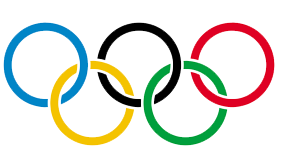Posts Tagged ‘level of measurement’
How definitive are Olympic results? The answer is as varied as the scoring systems the events employ. For many Olympic competitions a team tallies wins and losses–a set of nominal variables. Such variables are qualitative and  considered to be of the lowest level of measurement. They ask a question (e.g. won?, lost?). The data answer the question with either true, represented by one, or false, represented by zero. Nominal categories must be mutually exclusive–one cannot both win and lose a particular game. The categories must also be fully exhaustive–a team must win or lose any game played. This method of determining a winner often satisfies spectators because outcomes are usually indisputable. Because a team’s record places equal value on all wins, it cannot be objectively compared across time periods. Opponents and skill levels change. Whether a current team is better than a previous team therefore becomes primarily a matter of opinion.
considered to be of the lowest level of measurement. They ask a question (e.g. won?, lost?). The data answer the question with either true, represented by one, or false, represented by zero. Nominal categories must be mutually exclusive–one cannot both win and lose a particular game. The categories must also be fully exhaustive–a team must win or lose any game played. This method of determining a winner often satisfies spectators because outcomes are usually indisputable. Because a team’s record places equal value on all wins, it cannot be objectively compared across time periods. Opponents and skill levels change. Whether a current team is better than a previous team therefore becomes primarily a matter of opinion.
At the other end of the spectrum is the ratio scale. Two relevant examples are time and distance. Ratio variables have two simple criteria. First, zero has to represent nothing. The zero-minute-mile is eternally elusive and zero-meter javelin tosses denote a complete lack of ability. Second, when a value is doubled it must mean double the value. Four minutes is twice the duration of two minutes and six yards is twice the length of three yards. These results can be compared across time periods. Whether examining the luge, shot put, or high jump, today’s Olympians can be directly compared to those from the past. Ratio level measurement is necessary for world records.
Ordinal measurements lie somewhere between nominal and ratio scales. They can be put in order, but the distances between them contain no additional information. Judges give ordinal scores. Higher means better, but we cannot say how much better. Two additional points from judges today are not equivalent to two additional points from judges yesterday, last year, or in 1980. Fans have to accept that ordinal scores are subjective and cannot be compared across time (or even across judges).
So, to start a discussion about an event’s greatest athlete, choose an event judged on a nominal or ordinal scale. Debating one with a world record holder won’t give you much to talk about.
